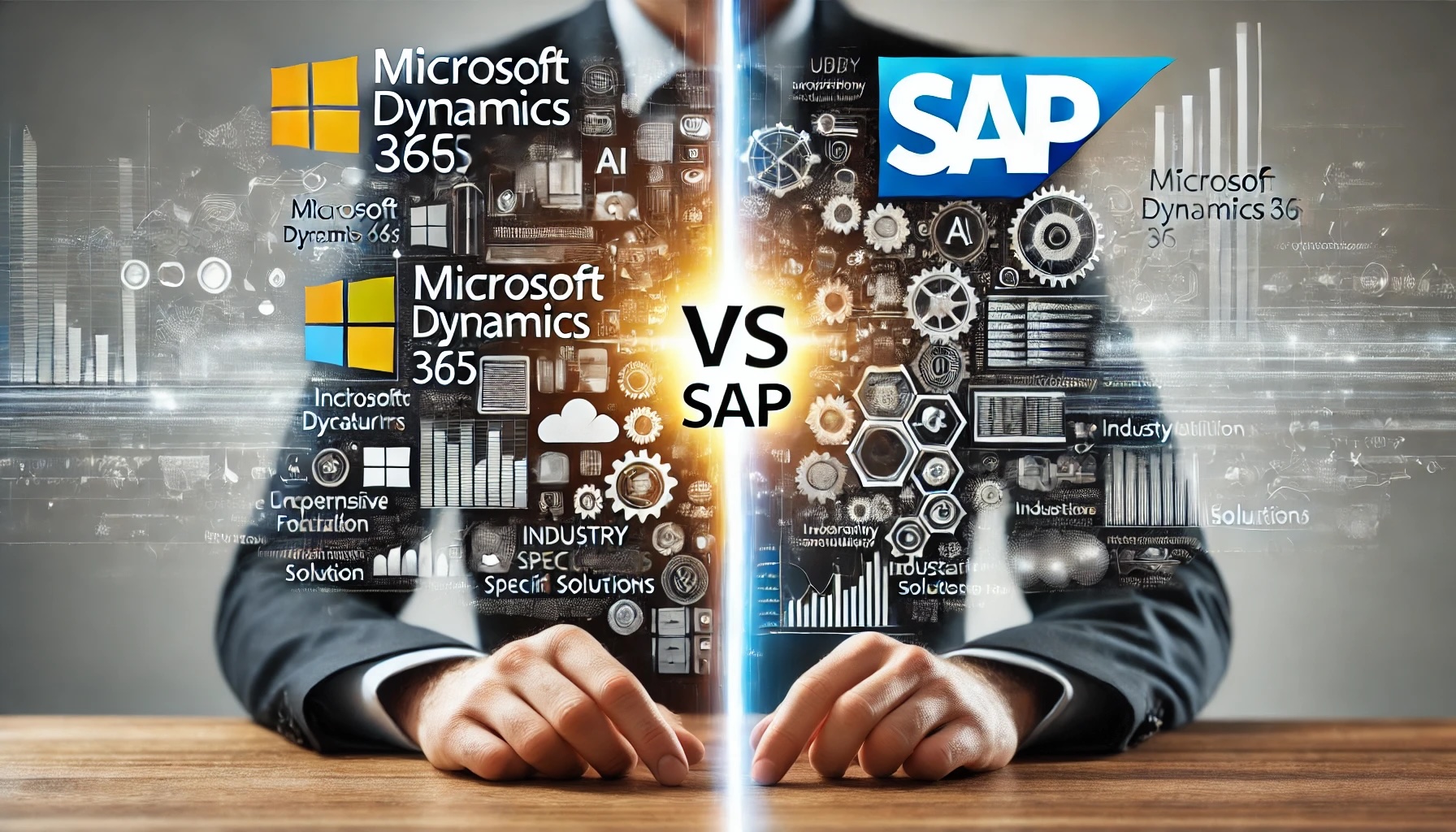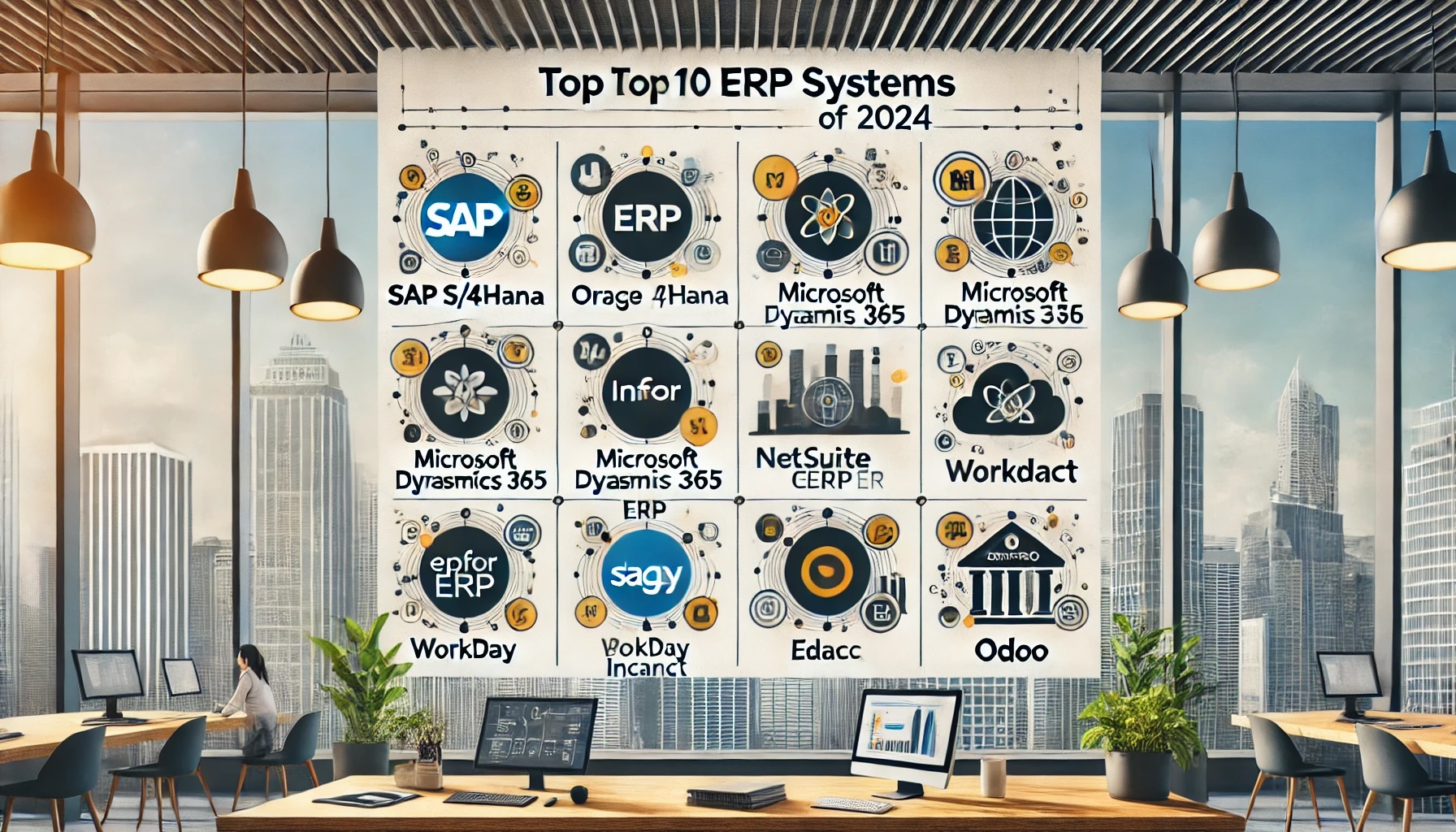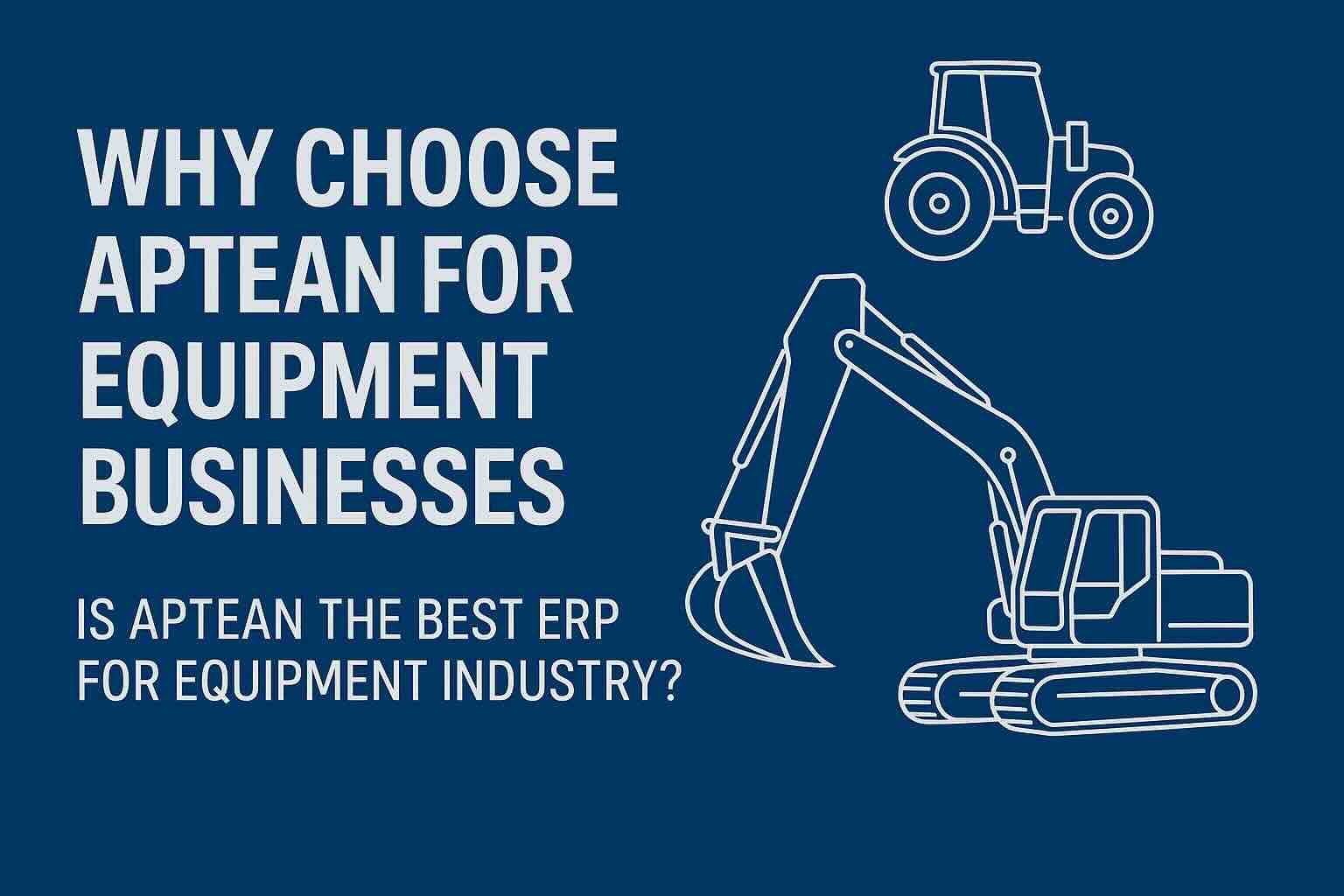Microsoft Dynamics 365 vs SAP: Which ERP System Reigns Supreme?

When it comes to enterprise resource planning (ERP) software, two giants stand out: Microsoft Dynamics 365 and SAP. Both offer comprehensive solutions designed to streamline business processes, enhance efficiency, and drive growth. However, choosing between Dynamics 365 and SAP can be challenging. This blog will delve into the key features, benefits, and considerations of each system to help you make an informed decision.
What is Microsoft Dynamics 365?
Microsoft Dynamics 365 is a cloud-based ERP and customer relationship management (CRM) solution that integrates various business applications. It offers modules for finance, operations, sales, marketing, customer service, field service, project service automation, and human resources.
Key Features of Microsoft Dynamics 365:
- Integration with Microsoft Products: Seamlessly integrates with other Microsoft products like Office 365, Azure, and Power BI.
- Flexibility and Scalability: Suitable for businesses of all sizes with the ability to scale as the business grows.
- AI and Analytics: Leverages artificial intelligence and advanced analytics for smarter decision-making.
- User-Friendly Interface: Known for its intuitive and familiar interface, reducing the learning curve for new users.
- Cloud-Based: Offers robust cloud capabilities, ensuring accessibility and security.
What is SAP?
SAP, short for Systems, Applications, and Products in Data Processing, is a leading ERP software provider known for its powerful and comprehensive solutions. SAP’s ERP systems are used by large enterprises to manage business operations and customer relations.
Key Features of SAP:
- Comprehensive Functionality: Covers a wide range of business processes including finance, supply chain, production, sales, and HR.
- Industry-Specific Solutions: Offers specialized solutions tailored to various industries such as manufacturing, retail, and healthcare.
- Robust Data Management: Excellent at handling large volumes of data and complex business processes.
- Customization: Highly customizable to meet the specific needs of any business.
- Global Reach: Widely used by multinational companies for its ability to handle multi-currency and multi-language environments.
Dynamics 365 vs SAP: A Comparative Analysis
- Ease of Use:
- Dynamics 365: Known for its user-friendly interface and seamless integration with other Microsoft products.
- SAP: While powerful, SAP can have a steeper learning curve due to its complexity.
- Cost:
- Dynamics 365: Generally more cost-effective for small to mid-sized businesses, offering flexible pricing models.
- SAP: Can be more expensive, often preferred by large enterprises with significant budgets for IT investments.
- Implementation Time:
- Dynamics 365: Typically quicker to implement, especially for businesses already using Microsoft products.
- SAP: Implementation can be lengthy and complex, requiring significant time and resources.
- Customization and Flexibility:
- Dynamics 365: Offers great flexibility and can be customized to fit various business needs.
- SAP: Highly customizable but may require more effort and expertise to tailor to specific requirements.
- Integration:
- Dynamics 365: Excels in integrating with Microsoft’s suite of tools, providing a seamless experience.
- SAP: Strong integration capabilities but might require more effort to integrate with non-SAP products.
- Support and Community:
- Dynamics 365: Benefits from Microsoft’s extensive support network and a large user community.
- SAP: Also has a robust support system and a vast community of users and experts.
Conclusion: Which is Right for Your Business?
The choice between Microsoft Dynamics 365 and SAP ultimately depends on your business needs, budget, and existing infrastructure. Dynamics 365 is ideal for businesses looking for a user-friendly, cost-effective, and quickly deployable solution, especially if they are already using Microsoft products. On the other hand, SAP is a better fit for large enterprises that need a highly customizable and comprehensive ERP solution capable of handling complex processes and large data volumes.
When deciding on “Dynamics 365 vs SAP,” consider your specific business requirements, scalability needs, and budget constraints. Both systems are powerful and can significantly enhance your business operations when implemented correctly.
To compare these ERP solutions and many more, you can use our new AI-powered Compare ERP tool. It’s free to use and you get a guaranteed discount on your first year’s licence fees with a referral from Compare ERP.









